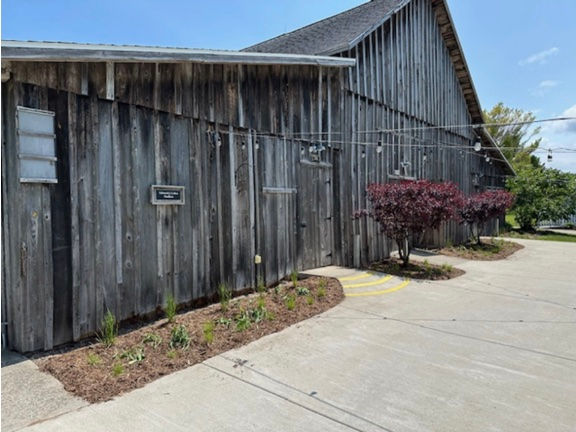Birch Creek Garden Restoration Project
- Jul 1, 2025
- 2 min read
Updated: Jul 23, 2025
Community service is a cornerstone of our mission as Door County Master Gardeners and our members volunteer at more than 25 organizations throughout Door County. These local organizations benefit from the garden-related activities and education provided by Master Gardeners.

One of DCMGA’s most recent projects is the Birch Creek Performance Center Garden Restoration. Birch Creek is a summer music academy located in the heart of Door County where students and faculty present more than 30 concerts at the Center and more than 30 outreach concerts during the academy season.
In collaboration with Door County Master Gardeners and supported by a grant from the Wisconsin Master Gardeners Association (WIMGA), Birch Creek is re-imagining its prime landscape spaces to provide vibrant, low-maintenance gardens where native plants thrive and local wildlife flourishes. Master gardeners are providing the design expertise and labor, and the new plants are purchased with grant funds. The existing gardens have suffered in recent years with overgrown plantings and invasive species.
The Dutton Concert Barn provides a rustic weathered wood backdrop, perfect for a prairie-inspired garden. Plantings include Prairie Dropseed as the foundational groundcover, complemented by Black-Eyed Susan, Purple Coneflower, and the unique charm of Monarda, commonly known as Bee Balm. The selected plants are drought tolerant and low maintenance, provide year-round interest and color, and support pollinators. They thrive in full sun (at least six hours of direct sunlight per day). They prefer dry well drained soil and can tolerate a range of conditions once established. The plants need to be watered regularly during the first year. After they are established, they will be remarkably drought tolerant. Leaving the plant stalks standing through the winter provides shelter and food for wildlife.
The Granary Butterfly Garden was created in an empty space adjacent to The Granary
to address declining pollinator populations, especially the iconic Monarch butterfly. The garden features Butterfly Weed, Coreopsis, Joe Pye Weed, False Sunflower, Black-Eyed Susan, and Purple Coneflower. A water feature is also included to provide hydration, mineral and salt intake, and cooling.
In essence, a garden featuring these particular plants is not just a pretty space, it's a living, breathing ecosystem that provides essential resources for wildlife, promotes ecological balance, and offers immense beauty and satisfaction to Birch Creek students, patrons, and staff.
The key principles in this garden restoration project include:
Comprehensive pollinator support (especially butterflies)
Abundant nectar energy source; range of flower shapes and sizes
Pollen sources essential for protein needs of bees and insects
Host plants for Monarchs and other butterfly and moth species
Extended bloom season with continuous blooms from spring to fall
Enhanced biodiversity attracts native bee species, other beneficial insects and birds
Low maintenance and drought tolerant once established, native species are resilient, adapted to local soil and climate conditions, and require minimal care
Educational and aesthetic value with vibrant colors and textures throughout the growing season, butterfly life cycle education, and calming stress reduction
With this project, Birch Creek is directly contributing to the conservation of declining pollinator populations, especially the iconic Monarch butterfly, which relies solely on Milkweed for its survival.
